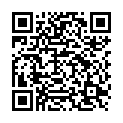|
|
|
| Module code: MFSTM-W-141 |
|
4V (4 hours per week) |
|
6 |
| Semester: 2 |
| Mandatory course: no |
Language of instruction:
German |
Assessment:
Project work (Can be repeated annually)
[updated 20.01.2020]
|
MFSTM-W-141 Leisure, Sports, Tourism Management, Master, ASPO 01.04.2017
, semester 2, optional course, general subject
|
60 class hours (= 45 clock hours) over a 15-week period.
The total student study time is 180 hours (equivalent to 6 ECTS credits).
There are therefore 135 hours available for class preparation and follow-up work and exam preparation.
|
Recommended prerequisites (modules):
MFSTM-110 Leisure, Sport and Tourism Studies
MFSTM-120 Stakeholders in the Leisure, Sport and Tourism Sectors
MFSTM-130 Project and Process Management
MFSTM-140 Intercultural and Sociocultural Competence
MFSTM-150 Empirical Methods in Social Science Research
[updated 24.01.2014]
|
Recommended as prerequisite for:
|
Module coordinator:
Prof. Dr. Kerstin Heuwinkel |
Lecturer:
Dozierende des Studiengangs
[updated 24.01.2014]
|
Learning outcomes:
Learning outcomes/skills:
Students will develop, expand and deepen their specialized and methodological knowledge on:
_ the terminology, dimensions and concepts of wellness and health tourism in Germany, Europe and worldwide,
_ health market phenomena with regard to social transformations and tourism trends,
_ economic, political, sociological and psychological theories that allow a better understanding of health tourism and the actors involved,
_ methodical and empirical procedures for analyzing relevant aspects,
_ evaluation, benchmarking and quality in wellness and health tourism,
_ analyzing and designing of products and services in wellness and health tourism,
_ legal framework,
_ special aspects of forming cross-sector networks,
_ marketing and distributing health tourism offers
After successfully completing this module, students will:
_ have gained insights into the business perspective of wellness and health tourism,
_ be able to analyze and present specific business management questions related to health tourism,
_ have developed a cross-sectoral understanding of economic behavior.
International and intercultural relevance:
_ Dealing with international companies and organizations in wellness and health tourism
_ Analyzing international health tourism flows
_ Use of examples from international organizations and networks
_ Introduction to the reality of professional practice in health and wellness management
Practical relevance:
_ Management and policy concepts in health and wellness tourism
_ Business and economic methods in health and wellness tourism
_ Social competence skills
_ Projects, guest lectures, excursions (together with students from different semesters and study programs)
_ Management concepts and methods
_ Students will expand and deepen their ability to use modern presentation techniques, their project and team work skills, as well as their scientific working skills.
After successfully completing this module, students will:
_ be able to understand and analyze the business management problems and special characteristics of health and wellness tourism and map them in planning models.
_ be able to apply planning and control methods in health and wellness tourism.
_ be able to describe, develop, plan and design business management processes in health and wellness tourism.
_ be able to plan, implement and control strategies and concepts in health and wellness tourism.
_ be able to apply specialist and methodological knowledge from process management to the introduction of control processes.
_ be able to communicate more efficiently (pyramid principle) and interact with third parties and groups
_ be able to apply specialist and methodological knowledge with regard to motivation and teamwork (improvement of leadership skills, such as initiative, team skills, integration, delegation, conflict and assertiveness skills, self-confidence, willingness to take responsibility and risks)
[updated 20.01.2020]
|
Module content:
_ Basic concepts and contexts of health and wellness tourism
_ Social, political and economic contexts
_ Internationalization
_ Cross-sector cooperation: Status Quo
_ Players in health and wellness tourism in Germany, Europe and worldwide
_ Structures and offers in wellness and health tourism in Germany, Europe and worldwide
_ Analyzing and designing offers in health and wellness tourism
_ Planning marketing tools for health and wellness tourism strategically
_ Marketing and distribution
_ Sustainability in health and wellness tourism
[updated 20.01.2020]
|
Teaching methods/Media:
_ Seminaristic lecture course
__ SOL _ Self-organized learning
_ _SRL _ Self-regulated learning_
_ Case studies (where appropriate, study trip)
_ Discussions with fellow students and third parties
_ Short presentations
On the basis of selected data material and case studies, students will learn to develop concepts independently, implement and reflect on them.
[updated 20.01.2020]
|
Recommended or required reading:
_ Berg, W.: Gesundheitstourismus und Wellnesstourismus, 2008.
_ Ebel, B. et. al.: Einwerbung und Betreuung internationaler Patienten, Tagungsband zur 2. Konferenz Medizintourismus, Sankt Augustin 16./17.09.2009.
_ Heuwinkel, K.: Reisen der Gesundheit zuliebe, 2011.
_ Heuwinkel, K.: HealthTourMobil - Ansatz zur Etablierung eines branchenübergreifenden Medizintourismus. In: Ebel, 2009.
_ Heuwinkel, K.: eHealth and Tourism. In: Hein, A., Thoben, W., Appelrath, H., Jensch, P. (Eds.): European Conference on eHealth 2007, Lecture Notes in Informatics, Volume P-118, 2007.
_ Juszczak, J.: Internationale Patienten in deutschen Kliniken: Ansätze zur Vermarktung von Gesundheitsdienstleistungen im Ausland. Sankt Augustin, 2007.
_ Marsek, P., Sharpe, F.: Medical Tourism. 2009.
_ Roland Berger: E-Health. Wachstumsperspektiven für die Telekommunikationsbranche, 2009.
_ Rulle, M.: Der Gesundheitstourismus in Europa - Entwicklungstendenzen und Diversifikationsstrategien, 2008.
_ WHO: Ottawa-Charta zur Gesundheitsförderung, 1986.
_ WTO: Concepts, definitions and classifications for tourism statistics , 1995.
_ Gesundheitsberichterstattung des Bundes: www. gbe-bund.de
[updated 20.01.2020]
|


